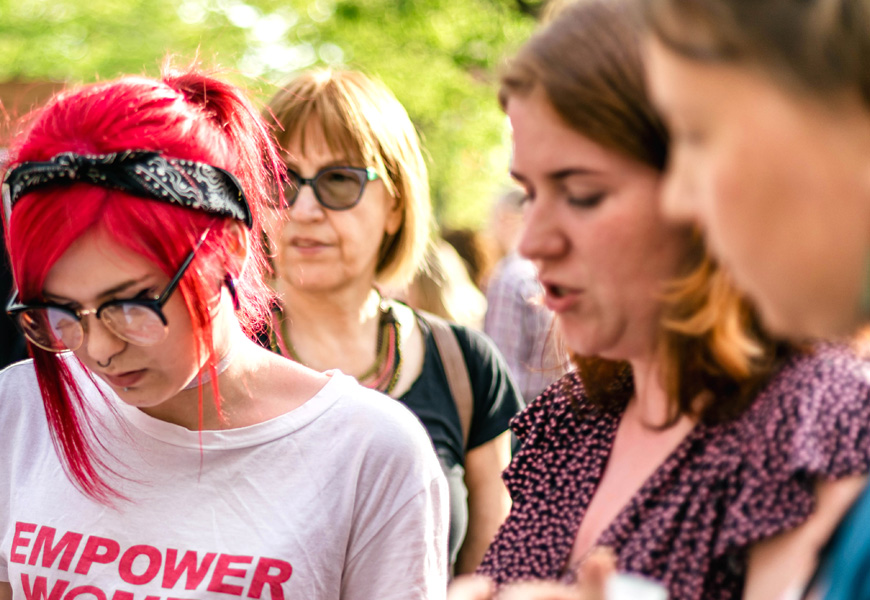
Shine National Partnership Manager
Along with all other services, Shine Women’s Mentoring Service (Shine) found the COVID 19 pandemic brought many challenges. This meant that Shine had to adapt quickly and revise service delivery in order to maintain levels of high-quality support to women.
Shine worked closely with partners to create liberation packs which included the provision of phones for women being liberated from prison since “gate pick-up’s” on day of release was no longer possible.
Mentors providing gate pick-ups for women on the day of release had been a critical part of Shine service delivery, however the liberation packs provided to women on day of release provided women with the information and tools they needed. The liberation packs contained the essential information on accessing services that they required on the day of release, a contracted mobile phone with their mentors contact details already added as well as basic hygiene essentials.
The women who received these packs during the pandemic referred to them as a “lifeline”. Many felt they would have been lost without a phone on release and therefore unable to engage with Shine or any other key services. They also reported that access to a phone that was contracted by Shine gave them a way to engage with their mentor for emotional support – reducing feelings of isolation and the risk of returning to old behaviours.
During the period of 2020/21 in the height of the pandemic, Shine provided support to 54 women in the Glasgow area.
To find out more about our service CLICK ON THE VIDEO BELOW:
Case Study
B was 38 years old when she was sentenced to a 2-year custodial sentence. Prior to this B had been in and out of prison over the past 25 years for a wide range of offences such as assault, and offences under the Misuse of Drugs Act.
Through contact with B, Shine was able to assess and prioritise her needs which allowed a bespoke support plan to be created prior to liberation. B had endured trauma since childhood (see link at the end for more information on trauma and adverse childhood experiences) and as a result of this suffered with poor mental health and addiction issues. On liberation B would be homeless which created a significant amount of anxiety for her. She also had a mistrust of support workers which created barriers for her engaging with the support she needed.
B and her mentor agreed to focus on the following:
- ss much as possible try to attain housing pre liberation;
- attend Homeless Addiction team for prescriptions, and ongoing addiction support;
- set up renewal for benefits;
- register with GP;
- request GP referral into mental health services, including counselling; and
- source a positive activity for B once ready that will increase her confidence.
Pre liberation Shine worked with the Homeless Casework Team to ensure they were aware of when B would be liberated in order to try and plan ahead as much as possible. Her mentor also contacted Simon Community and Housing 1st to refer B for assessment for supported accommodation which would offer B more stability and a feeling of safety.
With Shine support:
- B moved into a women’s hostel temporarily, whilst Simon Community assessed her for supported accommodation;
- successfully renewed benefits online and phone;
- registered with a GP and attended subsequent appointments with Tomorrows Women for support with her mental health – this included a specialist counsellor; and
- attended initial appointments with the Heroin Assisted Treatment (HAT) Service and arrangement of local chemist for prescriptions.
B has engaged well with Shine and a built a positive, trusting working relationship with her mentor. B felt able to contact her mentor regularly for support and found that she could be honest without the fear of judgement. Through several Outcome Star Readings, she could physically see how well she was progressing which increased her self-esteem.
3-4 months into Shine support, B applied and was accepted onto the Grace Chocolates 8-week programme which operated in Stirling. This was set up to assist offending women in the community. There she obtained certificates such as Health & Hygiene, Communication, Assertiveness etc, whilst also learning a specialist skill in making chocolates
The confidence B had gained from Grace’s Chocolates encouraged her to then move onto engaging with Venture Trust.
Just as Shine support was coming to an end B was offered supported accommodation with the Simon Community, where she would have her own flat, and twice weekly contact and support from housing officers. Alongside ongoing engagement with Tomorrow’s Women, B had enough support for Shine support to reach a positive ending.
“Overall a very positive journey with B After initial reluctance to engage, she gradually began to trust and express herself openly. Equal emotional and practical support was necessary and provided. She managed to stay stable and move forward despite significant obstacles. She now has belief in herself and her future. She stated this would not have happened without Shine support “. (Quote from partner organisation)
*A Note from the Editor – It struck me when I was reading this article the number of services and organisations who were involved in supporting B’s journey to a more stable and positive life away from offending behaviour.
When I talk about Community Justice Partners this is exactly what we mean. They are wide reaching, wide ranging and too numerous to count. It is very much about a connected community of services – learning about each other and drawing in expertise that can surround the needs of the people we are all supporting – whether that be health needs, educational or employability needs, housing needs – whatever it takes.
We are to some extent all supporting the same individuals – just different aspect of their needs. Sharing the learning so that more of us know more about each other and can leverage that support in to meet the needs of people in our city clears the path to a more positive life and ultimately a safer, more prosperous city for us all.
For more information on the impact of trauma and Adverse Childhood Experiences on later life you can read our articles in the 2019-20 Annual Reporter.
SEVERE & MULTIPLE DISADVANTAGE – AT THE ROOT OF OFFENDING BEHAVIOUR
Or take a look at the Trauma Deep Dive event into Women in the Justice System CLICK THE VIDEO LINK BELOW
OR CLICK HERE or on the INDIVIDUAL LINKS BELOW to the resources noted to view the series of Deep Dive Justice Events including the learning reports and recordings of the webinars:
Trauma deep dive learning resources
Children and families – 19 November 2020
- Learning report from the children and families event
- Videos from the children and families event
- Speaker slides from the children and families event
Violence against women and girls (VAWG) – 8 December 2020
Justice – 28 January 2021
- Learning report from the justice event
- Videos from the justice event
- Speaker slides from the justice event
Housing and Homelessness – 23 February 2021
- Learning report from the housing and homelessness event
- Videos from the housing and homelessness event
- Speaker slides from the housing and homelessness event
Adult Social Care – 25 March 2021
- Learning report from the adult social care event
- Videos from the adult social care event
- Speaker slides from the adult social care event
Summary of key learning from 2020-21 deep dive event series



